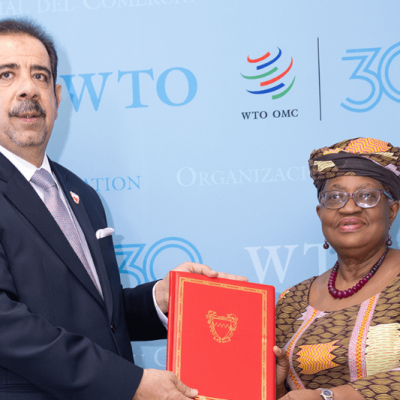Japan Coach Criticizes Fan Behavior During World Cup Qualifier Against Bahrain

Coach Hajime Moriyasu of the Japanese national football team voiced his displeasure with unsportsmanlike behavior of Bahraini supporters during World Cup qualifying game. Japan’s 5-0 victory in Manama enraged Moriyasu at the actions of the home crowd, which included boisterering Japan’s national hymn before the game at Bahrain’s National Stadium and using laser pointers to deflect his players.
Building on their previous 7-0 home triumph against China, the game was yet another remarkable performance for Japan in the third round of Asian World Cup qualifying. However, the crowd behavior eclipsed the success; one episode involving Japan’s striker Ayase Ueda enraged Moriyasu. As Ueda was preparing to strike a first-half penalty, a green laser light pointed at his eyes, aiming to break off his concentration. Although Ueda maintained focused and turned in the penalty with efficiency, the attempt to deflect him obviously incensed the Japanese side.
Fan Misconduct: Anthem Booing for Japan
The actions of Bahraini supporters exceeded the incident with the laser pointer. Before the game, the home supporters began boisterly booing, which agitated the visiting squad even more with the national song of Japan playing. This disdain for an opponent’s anthem not only reflects poor sportsmanship but also against the fair play standards international football tries to uphold. Moriyasu was clearly angry since the occurrence fell during a time of national pride for Japan.
Moriyasu Calls for Understanding Notwithstanding Frustration
After the game, Moriyasu presented his perspective of the situation. The acts clearly upset him, but he acknowledged the cultural differences that may arise in foreign contexts. ” Different countries have different cultures and worldviews; I want to accept that diversity,” he said in a post-match interview. Although his criticism of the unsportsmanlike behavior was clear-cut, his remarks exposed awareness of the challenges of international sports.
Moriyasu’s remark implied the more general challenge of maintaining respect and decency in international sports events, especially in very competitive environments where feelings are running strong. He did, however, also underline the significance of valuing cultural variety, which often leads to different approaches of expressing loyalty.
Japan’s continuous rule in World Cup qualifying
Notwithstanding challenges and demanding conditions, Japan kept their exceptional performance in the Asian qualifications; they easily trounced Bahrain 5-0. Apart from their earlier 7-0 thumping of China, this victory underlined Japan’s field supremacy, therefore strengthening their standing as among the top football nations in Asia. Moriyasu’s team displayed incredible grace especially during the penalty incident when Ueda composedly scored despite the laser pointer distraction.
These incidents remind us of the challenges teams could face operating in foreign environments as Japan develops their World Cup campaign. Though Moriyasu’s players’ professionalism under demanding circumstances and his leadership was unambiguous, his frustration highlights the significance of maintaining respect and sportsmanship abroad.
Events during Japan’s World Cup qualifying vs Bahrain have increased awareness of the need of better supporter behavior and respect of competing teams. Even if cultural differences in how spectators engage with the sport, unsportsmanlike behavior such booing an opponent’s national anthem or using laser pointers to deflect players crosses a line.
Respect is important in global sports, hence Moriyasu’s annoyance is understandable. As the World Cup qualifiers continue, players and supporters still have to adhere to the basic game standards of fair play and respect.




